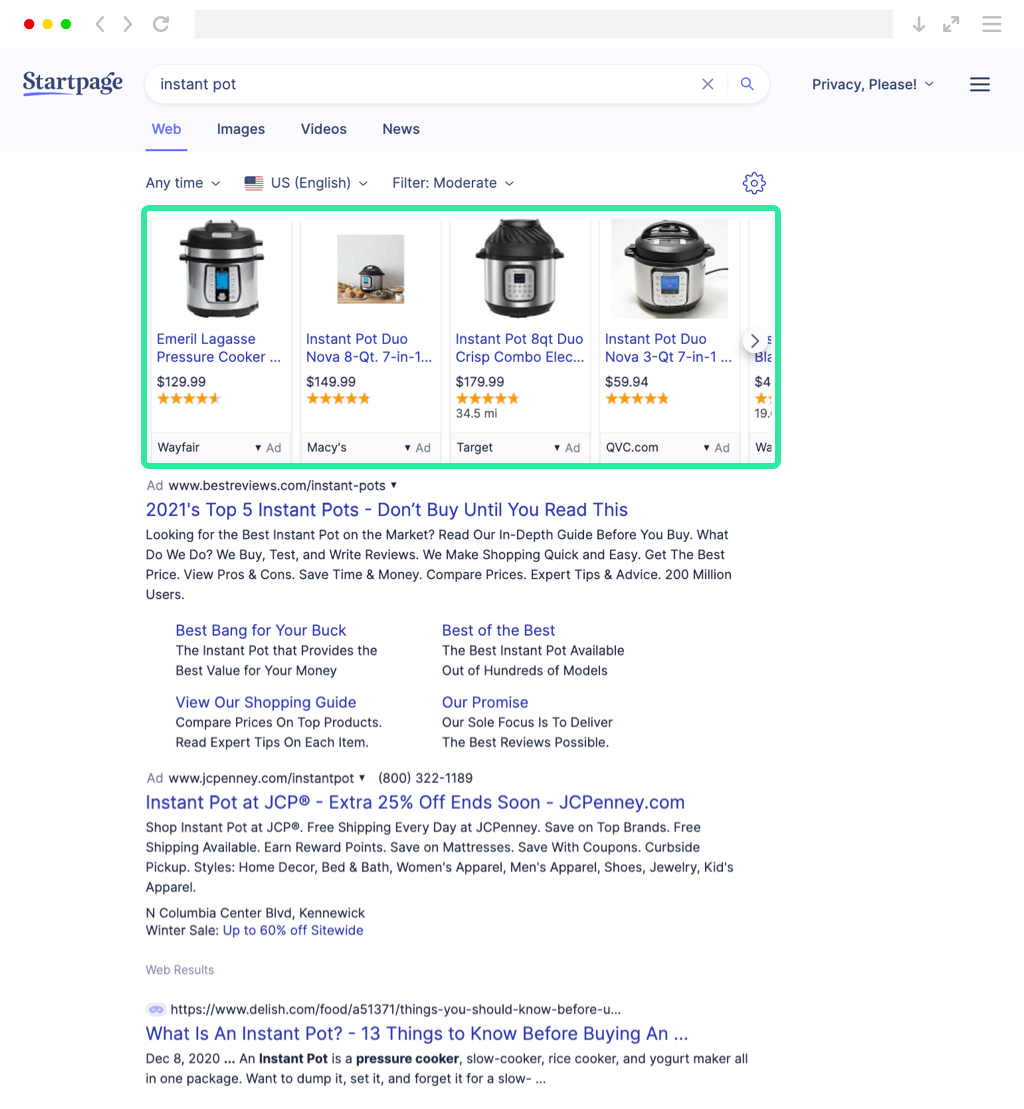Launching private shopping feature on Startpage

New feature: Introducing unprofiled product listings ads to your private search results for easier online shopping without the worry of targeted prices and ad tracking.
Almost half (48%) of online shoppers start their purchase journeys on search engines, according to a new report. But, product listings on non-private search engines have targeted prices based on personal data collected on you. It could potentially be causing you to spend more on a product than someone else would. We don’t think that’s fair.
Today, Startpage is pleased to announce our new Shopping feature to help you search for and buy products online without profiling, targeting, and tracking. To achieve this, your private search results will now return product listings in place of an ad – only when it’s directly related to your search query. And, because Startpage doesn’t profile you, you can rest assured the product listings you’re receiving are the same price for every Startpage searcher. No unfair price tracking based on your location, device, history, etc.
Startpage is committed to continuously making a better search experience for our users. Over the past several months, many of our users have reached out to request a fair, un-personalized, anonymous way to receive product recommendations that they are searching for. Our team is delighted to make this a reality for you by updating how we deliver ads, now offering direct ways to buy.
Private versus non-private search: the impact of how you search for products on final price
The practice of dynamic pricing by non-private search is just as prevalent as it is unfair. One set of evidence stems from a comparison study conducted by Harvard students into price discrimination by personal location.
The results were clear:
“After capturing the prices given for each of 32,989 5-digit ZIP codes in the United States, we found 3 different prices for the same online tutoring package. ZIP codes receiving the higher prices were in the Northeast and parts of New York. Bands of the middle prices appeared in parts of California, Texas, and the Midwest. Consumers who enter almost any ZIP code outside these areas will receive the lowest price.”
In an earlier blog, we explored more about how dynamic pricing is practiced across industries. Companies, from retailers to airlines to hotels, are using dynamic pricing to gather data and change prices accordingly.
In a piece by the NY Times, Angela Zutavern explained that dynamic pricing uses AI to “scan the web for global news events, weather predictions, trending Google searches, social media posts, local event schedules and other factors that could affect demand.”
We’re excited to help put a lid on unfair targeted prices!
Share your feedback with us
As always, we encourage you to share your opinion with us. This new feature was possible because users like you vocalized suggestions with us! If you have ideas or feedback, feel free to reach out to us via social media or by email: [email protected]











